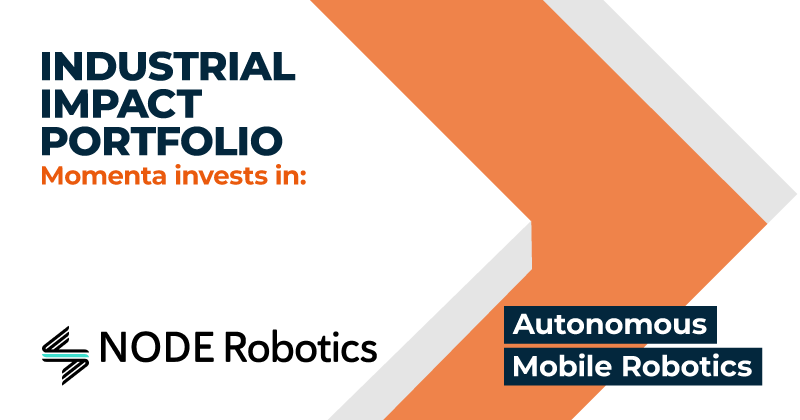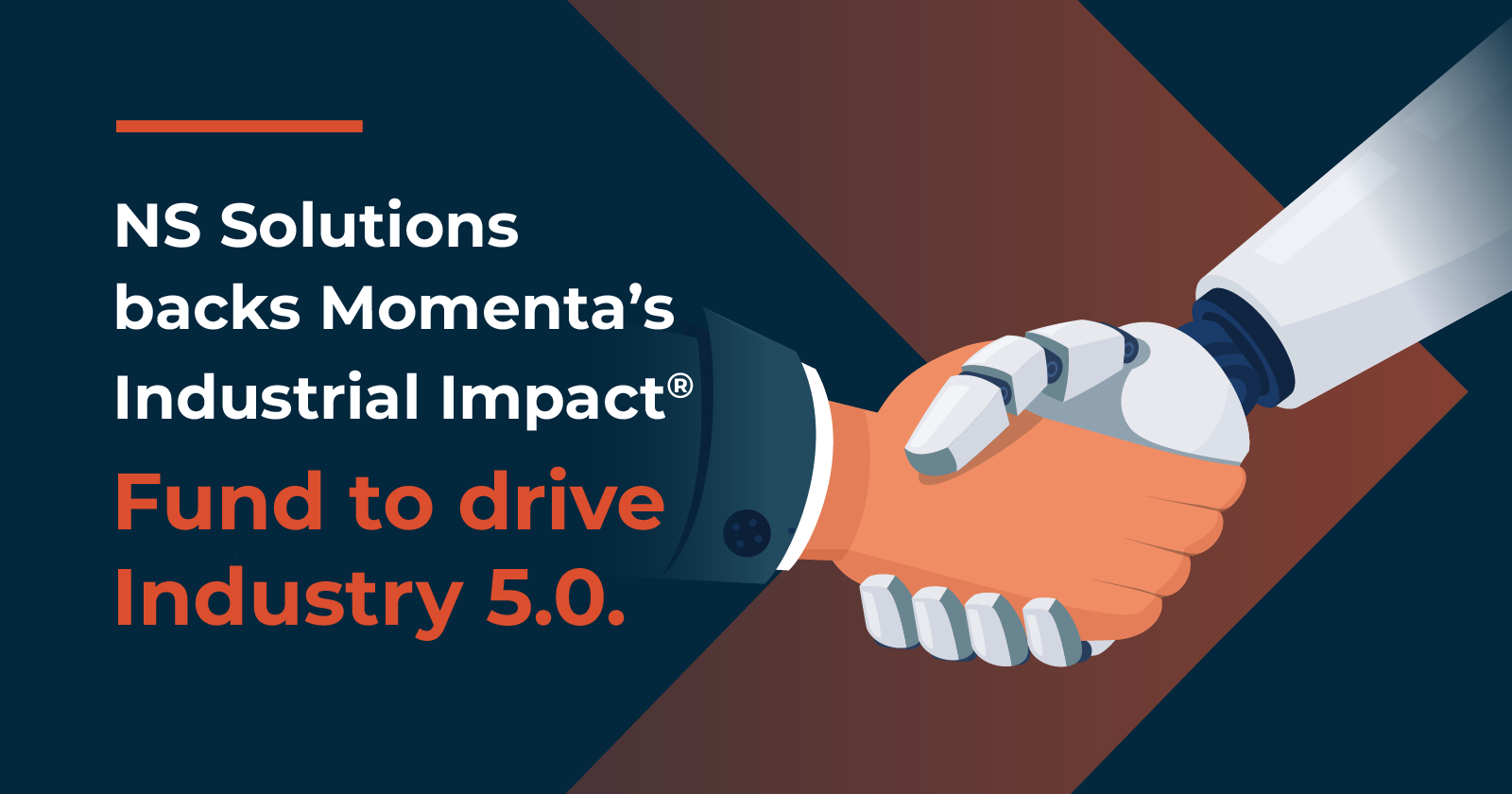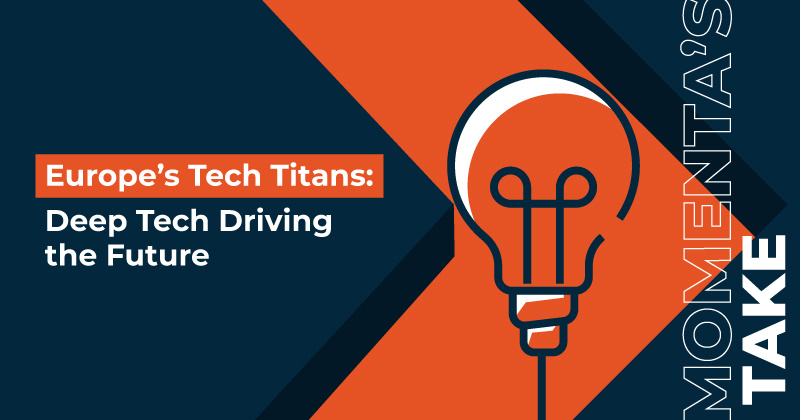June 7, 2023
Momenta's Take: Industry 5.0
Ken Forster
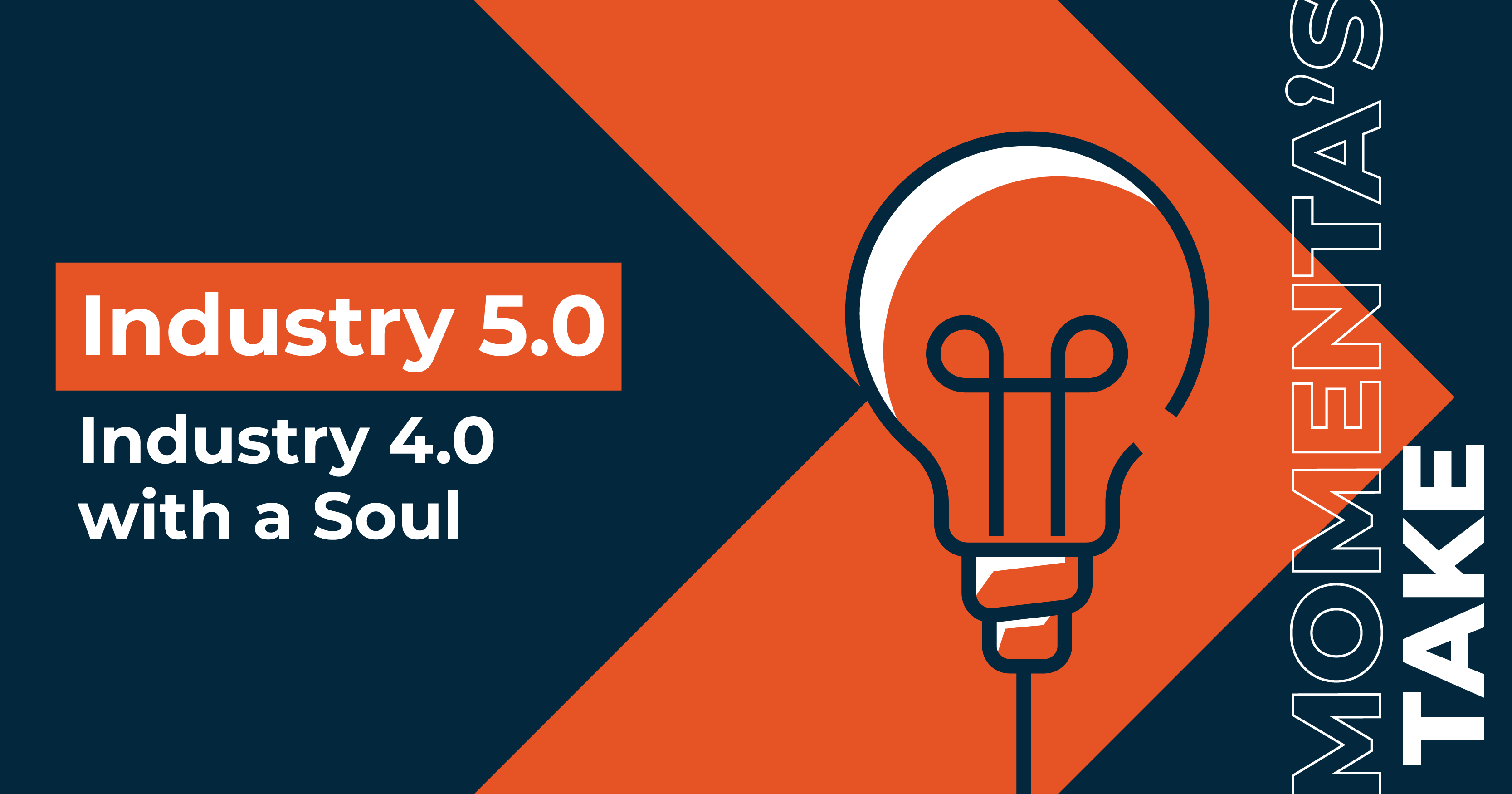
Industry 5.0 – Industry 4.0 with a Soul
Industry 4.0 refers to a set of principles and technologies that represent a highly advanced framework for automating and optimizing industrial processes, primarily in manufacturing. The Fourth Industrial Revolution (Industry 4.0) leverages foundational technology pillars, including Additive Manufacturing, Augmented Reality, Autonomous Robots, Big Data and Analytics, Cloud connectivity, Cybersecurity, Horizontal and Vertical system integration, Internet of Things (IoT), and Simulation and Digital Twins.
The application of advanced information technologies and automation is analogous to the adoption of the steam engine and assembly line to manufacturing – enabling faster, cheaper, and more efficient production. As the principles of Industry 4.0 began to be adopted in corporate strategy, criticism emerged that the automation-centric vision failed to incorporate the “human element” into design, processes, and objectives.
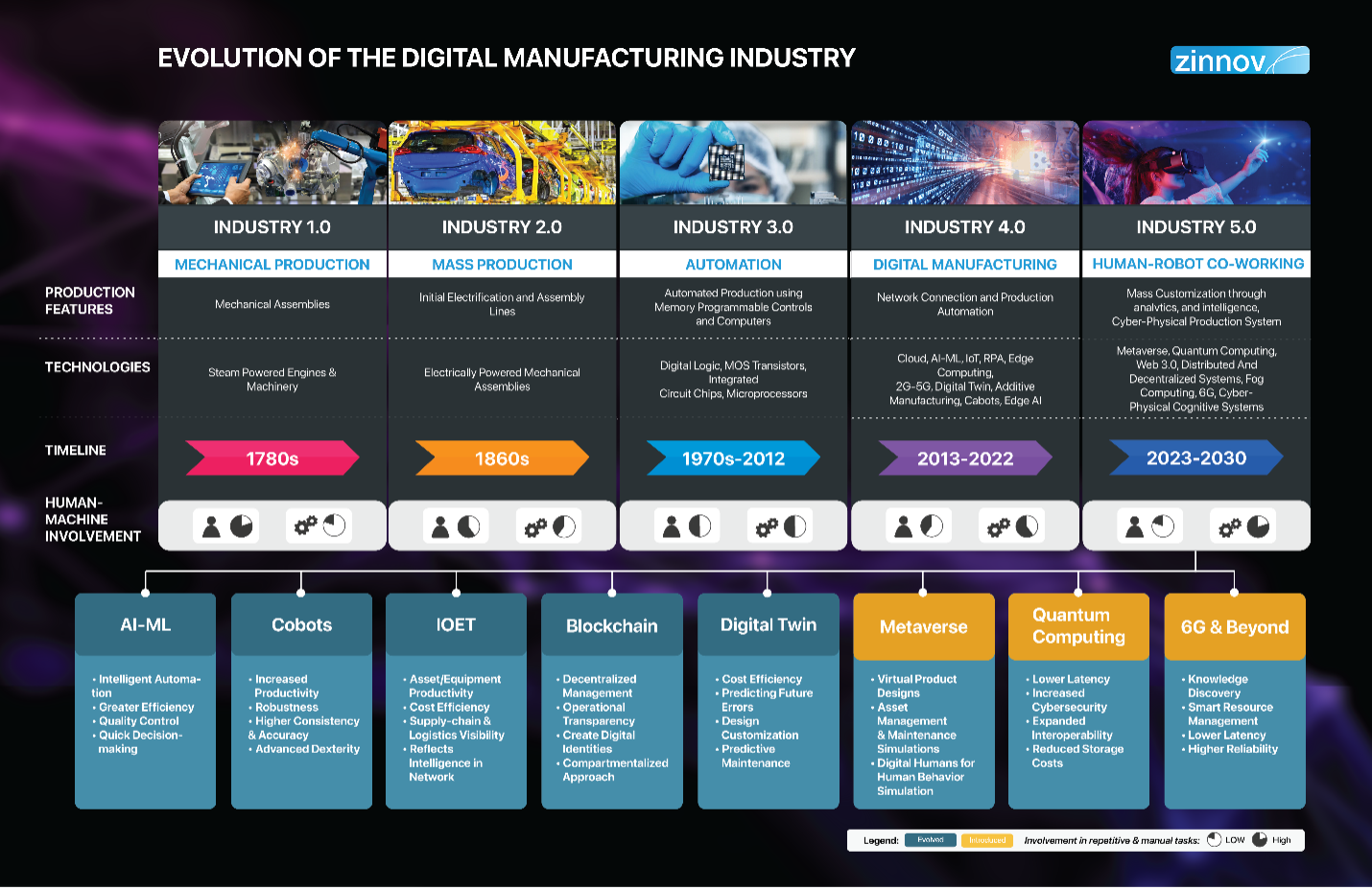
Source: Zinnov.com
Industry 5.0 builds upon the advancements of Industry 4.0 with a focus on the collaboration between humans and machines and an emphasis on ESG principles and social impact. The principles of Human Centricity, Sustainability, and Resilience differentiate from the techno-centric Industry 4.0, but whether this distinction is epochal in nature is doubtful (more accurate might be “Industry 4.0 Plus” but “5.0” is certainly more marketable).
“Manufacturing with a Soul”?
Researcher Dr. Catherine Ball prefers to reframe this as Society 5.0: “Society 5.0 is effectively Industry 4.0, plus purpose.” In some respects, the emphasis on human and societal factors reflects the desire to avert the dystopian concerns of widespread job destruction caused by automation and AI. There’s a strong argument for ethical considerations, given the adoption of fossil-fuel-powered machinery and transportation in previous Industrial Revolutions had resulted in environmental pollution and toxic emissions.
While IT and robotics are “cleaner” technologies when it comes to environmental impact, they give rise to fears of social instability from widespread job destruction. Younger workers also prioritize environmental and social considerations, with 80% of millennial and Gen Z employees considering positive ESG ratings to be at least somewhat beneficial when making job decisions, versus just 61% of Gen X.
Yes, Humans Are Still in Charge of the Machines
Industry 5.0 emphasizes the value of creativity, collaboration, and developing new workforce skills. Training future workers involves new technologies (such as AR/VR, social learning platforms, etc.) and a focus on specific skills (rather than academic degrees) to meet the demands for more flexibility and adaptability. The vision for mass customization in manufacturing depends on having an extensible workforce able to collaborate with systems and machines while leveraging AI and analytics for efficiency.
Truly Circular Economies - Quixotic Fantasy or Worthy Aspiration?
Conservation of resources and adopting “green” technologies such as renewable energy, recycling, and more environmental materials is a paramount goal of Industry 5.0. The concept of “circular economy” refers to when products and materials remain in use (rather than going to landfill) as waste and pollution are removed, based increasingly on renewable energy and materials, and accelerated by digital innovation. At this point, the vision of a circular economy is more aspirational than achievable in the near term, but expect to be relevant as a guiding principle on a project-by-project basis.
Weaving Ethics into the Future of Industry
While Industry 4.0 emerged to guide German manufacturing, Industry 5.0 principles have been more globally informed. The European Union is leading efforts to frame Industry 5.0 principles and promote the adoption of a societal approach to worker well-being and greening manufacturing, but there is also a lot of focus coming from India, South America, and other developing nations where labor and environmental regulations have historically lagged western Europe.
As sustainable practices gain momentum, large institutional investors are actively promoting ESG principles to encourage publicly traded companies to adopt them. Various industries, including textiles, are collaborating to revamp their practices, manufacturers are focusing on collaborative automation, and low-power communications providers are pushing forward with innovative use cases.

Momenta is the leading Industrial Impact venture capital + growth firm. We accelerate entrepreneurs and leaders devoted to the digitization of energy, manufacturing, smart spaces, and supply chains. Since 2012, our team of deep industry operators have made over 100 investments in entrepreneurs and helped scale over 150 industry leaders via our award-winning executive search and strategic advisory practices.

